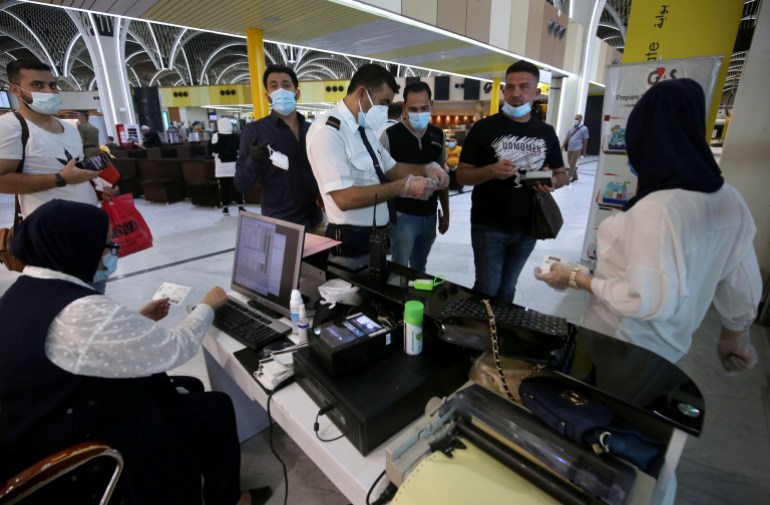Iraq today resumed tourist flights in most of its airports after four months of closure due to the Corona epidemic (Covid-19), which reached its peak in the country, where lifting the stone is essential to support the economy, which is experiencing its worst crises.
Several aircraft took off this morning from Baghdad International Airport to Lebanon and Turkey. Employees wearing masks and gloves made sure of passenger checks that had to prove they were free of the virus to be able to travel.
The Basra and Najaf airports in the south of the country also reopened their doors today, while Erbil and Sulaymaniyah (in the Kurdistan region of Iraq) extended the closure until August 1, according to the provincial authorities.
And the Iraqi authorities have already eased the comprehensive embargo, despite the continuing high numbers of injuries, which have touched 100,000 with more than 4 thousand deaths.
Reducing the embargo
and Iraq reducing the hours of the embargo, to start from nine thirty in the evening until six in the morning, and decided to re-impose the comprehensive ban during the Eid al-Adha, to return and lift it fully after the holiday.
The Director General of Health at the Iraqi Ministry of Health, Riyad Abdul Amir, stated that the decision to impose a comprehensive curfew during the holiday comes "because of the great disaster that occurred a week after the previous Eid Al-Fitr, which contributed to the rise in virus infections."
He pointed out that the injuries have continued to rise for weeks, but are offset by a significant increase in the number of recoverers and recovery cases in Baghdad and the provinces, and this is what the Ministry officials feel at ease.
Riad Abdel-Amir added that it is possible to decrease the number of injuries if citizens continue to adhere to preventive measures.
The commercial centers have opened their doors in Baghdad and other cities, with restaurants and cafes, which are currently only dependent on delivery for their customers, continuing to close.
Fears of a health system collapse prevail on the grounds that the country has limited infrastructure in this sector, due to decades of wars, corruption and instability.

